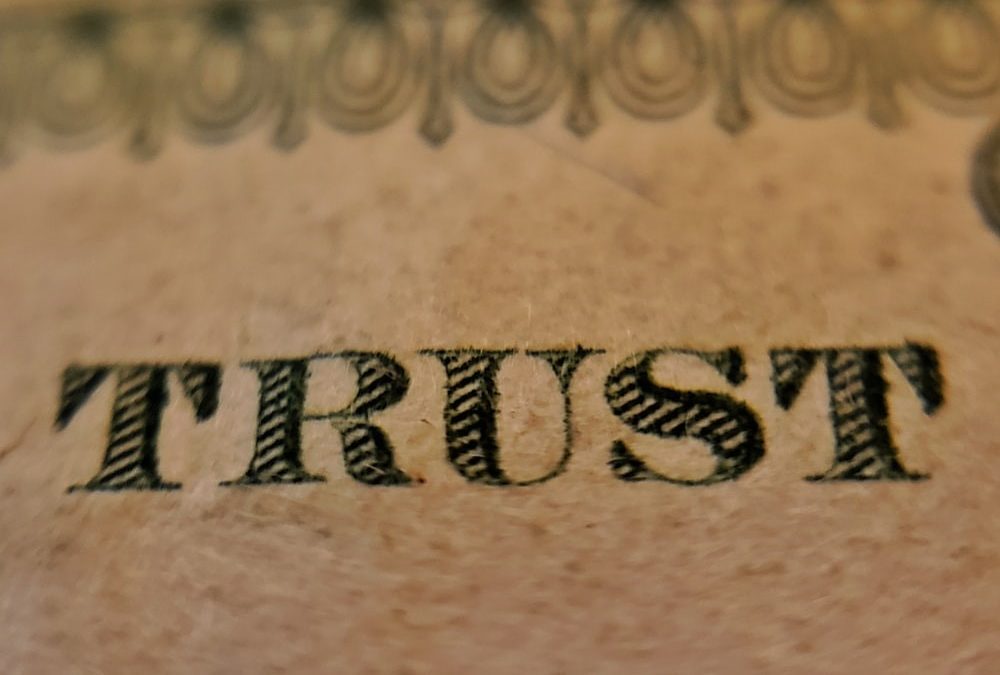“All things being equal, people work with people they like and trust. All things not being equal, people still work with people they like and trust.” –John Maxwell
There is nothing more important than trust in leadership.
Whether you are talking about leading your business, a team within your organization, or your family—trust is the essential foundation.
And if you are operating in a remote environment, trust has never been more vital.
Your customers need to trust you. Your team needs to trust you. Your boss needs to trust you. And your family definitely needs to trust you.
And trust is dependent on one thing—you.
The way you behave will cause people to trust, or not trust you.
Today we will learn how you can change your behavior to increase trust in any relationship or leadership role.
The Big Idea: Put your focus on your own trustworthy behavior, and many of your other problems will go away—at work and at home.
Real life examples
According to Stephen M.R. Covey (son of the famed Stephen Covey)—as trust goes up in relationships, the speed of progress increases while cost decreases.
The opposite is also true.
When trust goes down, progress slows way down—and ruptures in the relationship cost much more.
Trust is one of the most essential ingredients in your leadership plan. And it isn’t some vague, intangible concept. It is a skill you can improve that directly impacts real business results.
If you walked into an airport on September 12th, 2001, your experience was radically different than it would have been just 2 days prior. Trust had plummeted due to the horrific attacks the day before.
The effect was an enormous decrease in operational speed, and a huge increase in operational costs.
On the other hand, Warren Buffett reportedly acquired McLane Distribution from Wal-Mart after only a 2-hour meeting. This unquestionably saved a ton of time and money because trust and credibility was already very high. Buffett had likely spent years developing his credibility and reputation, and people trusted his character deeply.
When you take the time to build trust as a leader, you will eventually produce results at increasing speed with much less effort.
This is a massive competitive advantage in business.
When you have trust, problems can be resolved rapidly, and you adapt quickly. When you don’t have trust, things slow way down.
Applications to leading your family
Trust not only affects tangible business results, it directly affects your outcomes at home. Learning how to grow trust can dramatically improve your marriage, parenting, or friendships.
If your spouse or children can’t trust you, it’s very difficult to influence them. And without influence, you have no leadership. Your habits with follow through, consistency, honesty, faithfulness, spending money, or addiction—will either build or erode trust with your family.
Many burgeoning leaders place far too much emphasis on hard work, skill, policy, or procedures—without first building those things upon a rock-solid foundation of trust.
Furthermore, in times of crisis (like the pandemic)—we turn to people we trust.
If you are a leader of anything, and people don’t trust you, it’s time to stop making excuses and focus on changing your habits.
According to Covey’s model, trust is based on two primary factors—competence and character. That means you need to be really good at what you do, and you need to be trustworthy.
When you combine the two, your odds of success skyrocket.
What good and poor leaders believe about trust
(adapted from The Speed of Trust by Stephen M.R. Covey)
| Myth | Reality |
| Trust is too soft to measure | Trust is quantifiable, and measurably affects both speed and cost |
| Trust is slow | Nothing increases speed in leadership like high trust |
| Trust is only a function of integrity | Trust is based on Character & Competence |
| You either have trust or you don’t | Trust can be created and destroyed |
| Once lost, trust cannot be restored | Though difficult, you can rebuild it |
| You cannot build trust as a skill | Trust can be learned and improved |
| Trusting people is too risky | Not nearly as risky as not trusting people! |
| You establish trust one person at a time | Establishing trust with one person builds your reputation and can be multiplied |
Turn information into action
14 behaviors that will help you build trust in any relationship:
- Straight talk—Communicate clearly. Preface your discussions by declaring clear intent so you leave no room for misunderstanding.
- Courtesy and respect—It would be hard to imagine people trusting you if you are disrespectful, shaming, or unkind.
- Practice transparency—Be open and authentic. Eliminate hidden agendas. Err on the side of disclosure.
- Apologize—Swallow your ego and pride, apologize for things, but then follow through on your intent to change. This is a vital skill for marriage, and great modeling for your children.
- Give credit away—Nothing improves trust like really recognizing people and giving them credit for hard work. Make it a daily habit.
- Eliminate gossip—Gossiping will always raise questions about whether people can trust you. And anyone who gossips to you will eventually gossip about you.
- Deliver results—You must build a track record of delivering results. Be on time. Be reliable. Become a master of your craft.
- Grow every day—Never stop growing. People follow leaders who have an insatiable desire to learn and apply new strategies. Dig for the lesson in every setback.
- Confront reality—Do not continue to ignore obvious problems, at work or at home. It will catch up with you.
- Set clear expectations—People function better when they know what you want them to do. This brings a sense of purpose and security to team members. It will also help in parenting. You will need to state them more than once.
- Practice accountability—Hold yourself and others accountable. Leaders who generate trust do both.
- Always listen first—”Seek to understand before you seek to be understood” (Covey-7 Habits of Highly Effective People). This is timeless advice that always seems to be relevant.
- Keep your commitments—Develop the courage to say No to enough things that you can do the most important things in your life with integrity and focus.
- Extend trust to others—Trust often begets trust. Yes, you can get burned. But a leadership life micromanaging and distrusting others will kill your leadership impact and never sets others free to thrive and reach their potential.
Have a great weekend!
Parker
If you like to listen to podcasts on similar topics, check out The Next Peak Podcast at www.nextpeakpodcast.com or find in your Podcast app. Parker is now the co-host of this show.
Resources
The Speed of Trust by Stephen M.R. Covey




